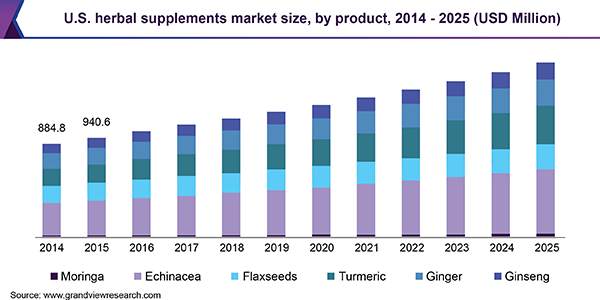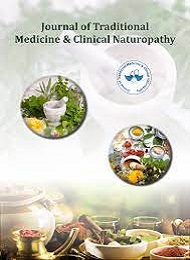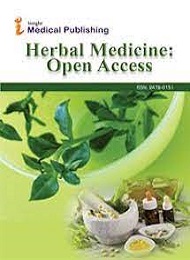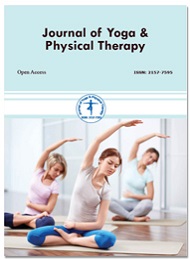Theme:
Traditional Plant Medicine 2021
- Welcome Message
- About Conference
- Why to attend?
- 10 Motives to attend our Conference
- Sessions and Tracks
- Market Analysis
- Young Research Forum
- Past conference Report
The Committee on Herbal and Traditional Plant Medicines invites all experts and researchers from around the world to attend the “8th International Conference on Herbal and Traditional Plant Medicine” in Singapore on November 29-30, 2021, which will include timely Keynote presentations, Oral talks, and Poster presentations.
The main goal of this international conference on herbal and traditional plant medicines is to bring together all herbalists, phytomedicine researchers, physiotherapists, herbal plant experts, and other experts on one platform to exchange ideas and knowledge across disciplines in order to raise awareness about traditional methods and herbal medicines. It also serves as a venue for academicia.
Target audience:
- Traditional medicine society and associations
- Traditional and Alternative medicine universities
- Phytomedicine doctors
- Phytomedicine Scientists
- Phytotherapies
- Phytomedicine Researchers
- Phytomedicine Faculty
- Phytomedicine students
- Herbalists
- Herbal medicines expert
- Medical Colleges
- Data Management Companies
- Training institute
- Software Developing Companies
- Business Entrepreneurs
- Drug Manufacturing Companies
- Herbal medicines Associations and Societies
-
Natural Medicine Practitioners
For Researchers and Faculty Members:
- Keynote Speaker
- Oral Presentations
- Plenary Speaker
- Poster Display
- Symposium hosting (4-5-member team)
- Workshop organizing
For Universities, Associations & Societies:
- Association Partnering
- Collaboration proposals
- Academic Partnering
- Group Participation
For Students and Research Scholars:
- Poster Competition (Winner will get Best Poster Award)
- Young Researcher Forum (YRF Award to the best presenter)
- Student Attendee
- Group Registrations
For Business Delegates:
- Speaker Presentations
- Symposium hosting
- Book Launch event
- Networking opportunities
- Audience participation
- For Product Manufacturers
- Exhibitor and Vendor Booths
- Sponsorship opportunities
- Product launch
- Workshop organizing
- Scientific Partnering
- Marketing and Networking with clients
- A once-in-a-lifetime opportunity
- Find more about the latest research trends.
- Motivational Speeches
- Link and network
- Sources of Inspiration
- Extend your impression
- Participate in a unique cooperation
- Laurels for Outstanding Research
- Best Poster And Young Scientist Award
- Benefit for the money
Track 1: Herbalism
Herbal medicine (also known as herbalism) is the study of pharmacognosy and the application of therapeutic herbs, both of which form a foundation of traditional medicine. There is little scientific evidence for the safety and usefulness of plants used in 21st-century herbalism, which often lacks purity and dose requirements. Herbal medicine frequently contains fungus and bee products, as well as miner's remedies.
Track 2: Pharmacognosy
The study of plants or other natural sources as potential drug supplies is known as pharmacognosy. Pharmacognosy is defined as "the study of the physical, chemical, biochemical, and biological aspects of medications, drug substances, or potential drugs or drug substances of natural origin, as well as the search for new drugs from natural sources," according to the American Society of Pharmacognosy.
Track 3: Tribal and Folk Medicine
The holistic herbal medicine used by tribal people is a unique feature of their way of life. The tribes have identified many herbs that can heal a range of diseases since they have lived in harmony with nature for ages.They don't have any negative side effects. This indigenous stream of herbal medicine is gaining popularity these days, and an increasing number of people, not just from the tribal group, but also from the outside civilised world, are approaching tribal medical specialists to receive treatment.
Track 4: Aromatic plants and Aromatherapy
One of the most difficult aspects of dealing with dementia patients is treating agitation and hostility, which are characteristic Behavioural and Psychological Symptoms of Dementia (BPSDs) of Alzheimer's Disease (AD). Aromatherapy is gaining popularity as a treatment for agitation, violence, and psychotic symptoms, with clinical data to back it up.Some molecular processes have been postulated to explain the behavioural effects of essential oils, either as a full phytocomplex or as individual components, but more basic study is required.
Track 5: Japanese Kampo Medicines for the Treatment of common Diseases
Kampo, a type of Japanese traditional herbal medicine, is a one-of-a-kind pharmacological therapy that began in ancient China and was further developed in Japan (Watanabe et al., 2011). In the gastroenterology sector, Kampo medications have been used as prescription drugs for the treatment of individuals with unexplained physical symptoms such as nausea, stomach pain, diarrhoea, and constipation.
Track 6: Neurobiology of Chinese herb medicines
Herb–drug interactions have become an increasingly serious safety issue in the clinical uses of conventional medications as traditional herbal medicines, particularly Chinese herbal medicines, have become more widely used. The pace of research in this field is accelerating.
Track 7: Legeslation of medical plant in Africa
Traditional medicine receives strong government support in Mali, and research and development in this area is overseen by the Department for Traditional Medicine, which is part of the National Institute for Research on Public Health, which is part of the Ministry of Health. In Hinduism, Buddhism, and Jainism, there are a wide range of yoga schools, practises, and goals, as well as four pathways or styles of yoga: Karma yoga, Kriya yoga, Bhakti yoga, and Jnana yoga.
Track 8: Yoga
Yoga Sanskrit: योग; ISO: YÅga , About this soundpronunciation), Sanskrit for "yoking" or "unity", is a series of physical, mental, and spiritual activities or disciplines that originated in ancient India. Yoga is one of the six traditional philosophical schools of Hinduism.
Track 9: Hepatotoxicity of herbals and dietary supplements
The current rules are based on the Traditional Herbal Medicine Products Directive 2004/24/EC [69], which was published on March 31, 2004. All traditional medicines sold in health food stores and pharmacies were supposed to be properly registered and approved before they could be sold.
TRACK 10: Natural Products and Traditional Medicine for Covid-19
Coronavirus disease (COVID-19) is a contagious infection caused by a newly discovered virus. The development of a vaccine has become a serious concern for global public health, and a desire to find a solution has compelled professionals from all over the world to work together to find a solution. In the long run, natural products are classified as bioactive compounds, and several phytochemicals, such as
Track 11: Complementary and Alternative Medicine
Elective medication refers to restorative goods and techniques that are not part of routine care. Elective medication is used instead of regular medications or therapeutic care. Elective medication differs from complementary medication. In addition to normal restorative medications, complementary medical methods are used, although elective medication is used instead.
Track 12: Acupuncture
Needle treatment is based on the idea of passing delicate needles through your skin at strategic points on your body. Needle therapy, which is an important part of traditional Chinese medicine, is most usually used to relieve pain. Needle therapy is defined in traditional Chinese medicine as a strategy for altering the surge of unimportant or life force — known as qi or chi (CHEE) — that is recognised to flow through the body.
Track 13: Ayurveda: Self-Healing
Ayurveda is an alternative pharmacy with a lengthy history in India, dating back over 5000 years. Ayurvedic specialists see physical and mental proximity, as well as character, as a unit that has an impact on one another. The term Tri-Dosha denotes that humans are part of nature, with three basic energies that regulate our internal and external processes.
TRACK 14: Korean medicine
Korean medicine has developed unique treatment procedures and characteristics that might be investigated throughout research. Favorable outcomes from clinical treatment with Korean medicine for intractable diseases have been documented, as have positive outcomes from alternative and complementary medicine practise in many nations, frequently in conditions where traditional medicine's therapeutic procedures are still ineffective.
Track 15: Unani Medicine and Siddha Medication
Track 17: Marine natural products
Marine natural products are important components of biologically active agents, and marine species such as tunicates, sponges, soft corals, and mollusks are thought to have harvested bioactive substances. Marine natural goods have made it to the commercial stage in a number of occasions. Typically, highly effective natural compounds are produced in small quantities, but thanks to technological breakthroughs, this is no longer the case.
Track 18: Homeopathy medicines
Homeopathy medicine was created in Germany 200 years ago, based on the notions of "Like heals Like" and "Law of Minimum Dose." Medicine is made up of sugar pills, gels, lotions, and tablets made from plants, animals, and minerals. Chronic fatigue syndrome, rheumatoid arthritis, irritable bowel syndrome, depression, and other health problems are treated with homoeopathic remedies.
Track 19: Holistic Medicines and occupational therapy
Holistic medicine is a type of medicine that looks at the whole person. Treatment approaches entirely disregard a person's bodily, mental, spiritual, and emotional well-being. Because holistic medicine views the body as a system of interconnected parts, the treatment process entails balancing the person's entire system. Occupational therapy is a type of physical treatment that focuses on the hands.
Track 20: Recent advances in herbal and traditional medicines
Standard pharmaceutical implies to drugs that have been shaped by utilizing hones and data which has progressed centuries. The showcase estimation of customary meds are extending and the in general annually showcase approaches US$ 60 billion. China, India, Nigeria, the Joined together States, and the World Wellbeing Organization have all appeared solid intrigued in progressing conventional medication. Indeed a number of pushing medicate companies are looking forward to promising remedial flavors and inventive engineered mixes. The later inquire about on a conventional sedate appears promising comes about within the treatment of diabetes, cancer, Helps, viral diseases, and other pathogenic illnesses.
Track 21: Medicinal plant in Covid-19
According to our evidence summaries, N. sativa (black cumin) seed was among one of the medicinal plants with most published positive evidence. Ethanolic extracts of N. sativa seeds demonstrated antiviral properties by decreasing viral load, alpha fetoprotein, and improved liver function parameters among hepatitis C infected patients . In animal studies, N. sativa seed oil presented both antiviral and immunomodulatory effects against cytomegalovirus, reducing viral loads to an undetectable level. It can also enhance the immune response by increasing CD3 and CD4 counts, as well as up-regulating interferon-gamma (IFN-γ) release from Natural Killer T-cells and macrophages. In cell studies, ethanolic extracts of N. sativa seeds also demonstrated inhibitory activity against coronavirus species MHVA59 (mouse hepatitis virus-A59) replication by downregulating gene expressions of various leukocyte transient receptor proteins (TRP) such as the TRPA1, TRPC4, TRPM6, TRPM7, TRPM8 and TRPV4 genes.
Track 22: Internal and General Medicine
Internal medicine, sometimes known as general internal medicine in Commonwealth countries, is a medical speciality that focuses on the prevention, diagnosis, and treatment of illnesses of the internal organs. Internists, or physicians (without a qualifier) in Commonwealth countries, are internal medicine specialists.Internists are experts at treating patients with undifferentiated or multi-system illness processes. Internists provide care to both hospitalised and ambulatory patients, as well as teaching and research. In Commonwealth countries, internal medicine and family medicine are sometimes confused as synonyms.
Track 23: Botanical medicine
Botanical medicine, commonly known as herbal medicine, is the study and practise of treating acute and chronic disease with medicinal plants and extracts. Plants are the source of many conventional medicinal medications.Botanical medicine refers to the use of plants (or plant-derived compounds) to treat or prevent disease. From prehistory to the present, plants have been employed in this fashion by all societies.
Track 24: Hijama Cupping Therapy
Cupping originated in China and is a sort of alternative therapy. Suction is created by placing cups on the skin. The suction may aid in the healing process by increasing blood flow.Suction is also said to aid the passage of “qi” in the body, according to proponents. Qi is a Chinese term that translates to "life energy." Ge Hong, a famous Taoist alchemist and herbalist, is said to have been the first to use cupping. He lived from the year 281 to the year 341.
Track 25: Magnetotherapy
Magnetic treatment, also known as magnetic field therapy or bioenergy therapy, is an alternative therapy in which the body is treated with magnets of various sizes and strengths to relieve pain and treat disease.Individually or in groups, thin metal magnets are connected to the body. They can be worn as bracelets or necklaces, with adhesive patches to keep them in place, or wrapped around the wrist, elbow, knee, ankle, foot, waist, or lower back in bands or belts.
Worldwide traditional herbal medicines are gaining popularity as a source of complementary and alternative remedies. In contrast to conventional pharmaceuticals, herbal medicines are generally presumed as safe, harmless, and without side effects, because of their natural origin.
MARKET DEVELOPMENT
As per WHO estimation, around 80% of population from most of Asian and African countries depends on the traditional medicine for primary health care. The market analysis drives for global Traditional medicine are growing rapid aging population, increase of consumer awareness, less or no side effects, supplying innovations, release of Current Good Manufacturing Practices (CGMP) for dietary supplements by FDA. Other factors are escalating prices, health budgets calculations of modern medicinal system that has more consumers towards the cost effective, economical and safe herbal medicine systems. Considering all these factors the market for Traditional medicine is expected to reach $ 115 billion by the end of 2025, this market is projected to reach a growth of CAGR of ~ 7.2 % during 2014-2025.
The Global Market for Herbal Supplements:
There are a few homes grown supplements which are utilized for a few cures within the around the world advertise. Ginkgo biloba is an antiquated plant extricate which is utilized a pharmaceutical in Chinese home grown pharmaceutical. It has been utilized as a characteristic asthma cure, ADHD common cure and treating dementia. Echinacea is an herb that's utilized as a home grown cure for moo WBC number, rheumatoid joint pain, headaches, and a few other viral and yeast contamination. St. John’s wort could be a well-known upper and a successful treatment for sadness with less side impacts comparatively. Flute player methysticum is demonstrated to be compelling for the treatment of uneasiness, sleep deprivation, and related anxious clutter.

In recognition of their outstanding contribution to the conference theme, the 8th International Conference on Herbal and Traditional Plant Medicine will honour prestigious awards for talented young researchers, scientists, young investigators, post-graduate students, post-doctoral fellows, trainees, and junior faculty. The Young Scientist Awards make every attempt to provide a solid professional environment for young scientists.
YRF Registration Benefits:
5th International Conference & Exhibition on Herbal & Traditional Medicine (Herbal Conference 2018) hosted by Conference Series took place during November 5-6, 2018 at London, UK. Active participation and generous response were received from the Organizing Committee Members, Editorial Board Members of Journals as well as from eminent scientists, talented researchers and young student community. Researchers and students who attended from different parts of the world has made the conference one of the most successful and productive events in 2018 from Conference Series. The conference was marked with the presence of renowned scientists, talented young researchers, students and business delegates driving the three days event into the path of success with thought provoking keynote and plenary presentations highlighting the theme, “Transforming and Encouraging New Innovations in Treatment: A True Devotion to Healing”.
The conference proceedings were carried out through various Scientific-sessions and plenary lectures, of which the following topics were highlighted as Keynote-presentations:
Keynote Presentations:
Sustainable utilization of Epimedium species - Ying Wang, South China Botanical Garden, Chinese Academy of Sciences, China
Evaluation of solvent effects on the extraction of phenolic compounds and in vitro antidiabetic potential of Stevia rebaudiana extracts- Uswatun Hasanah Zaidan, Universiti Putra Malaysia, Malaysia
Antiviral effect of Unani formulation in the management of chronic Hepatitis B- Mohammad Akhtar Siddiqui, Jamia Hamdard University, India
New hope the handling of HIV/AIDS by herbalove comparison of fruit golobe, pangi leaves and lamivudin on test in vitro- Arend L Mapanawang, STIKES Halmahera, Indonesia
Conference Series has taken the privilege of felicitating Herbal Conference 2018 Organizing Committee, Editorial Board Members and Keynote Speakers who supported for the success of this event. Conference Series, on behalf of the conference sponsor appreciates all the participants who put their efforts for this event and sincerely wishes them success in future endeavors.
The esteemed guests, Keynote speakers, well-known researchers and delegates shared their innovative research and vast experience through their fabulous presentations at the podium of grand Herbal Conference 2018. We are glad to inform that all accepted abstracts for the conference have been indexed in “Journal of Medicinal & Aromatic Plants” as a special issue.
Conference Highlights
- Herbalism
- Pharmacognosy
- Tribal and Folk Medicine
- Aromatic plants and Aromatherapy
- Japanese Kampo Medicines for the Treatment of Common Diseases
- Neurobiology of Chinese Herb Medicine
- Legislation on Medicinal Plants in Africa
- Yoga
- Hepatotoxicity of Herbals and Dietary Supplements
- Natural Products and Traditional Medicine for Covid-19
- Complementary and Alternative Medicine
- Acupuncture
- Ayurveda: Self-Healing
- Korean medicine
- Unani Drug System and Siddha Medication
- Natural Compounds
- Marine natural products
- Homeopathy medicine
- Holistic Medicine and Occupational therapy
- Recent Advances in Herbal and Traditional Medicine
- Medicinal plant in covid 19
- Internal and General Medicine
- Botanical medicine
- Hijama Cupping Therapy
- Magnetotherapy
To share your views and research, please click here to register for the Conference.
To Collaborate Scientific Professionals around the World
| Conference Date | November 29-30, 2021 | ||
| Sponsors & Exhibitors |
|
||
| Speaker Opportunity Closed | |||
| Poster Opportunity Closed | Click Here to View | ||
Useful Links
Special Issues
All accepted abstracts will be published in respective Our International Journals.
- Journal of Traditional Medicine & Clinical Naturopathy
- Herbal Medicine: Open Access
- Journal of Yoga & Physical Therapy
Abstracts will be provided with Digital Object Identifier by





